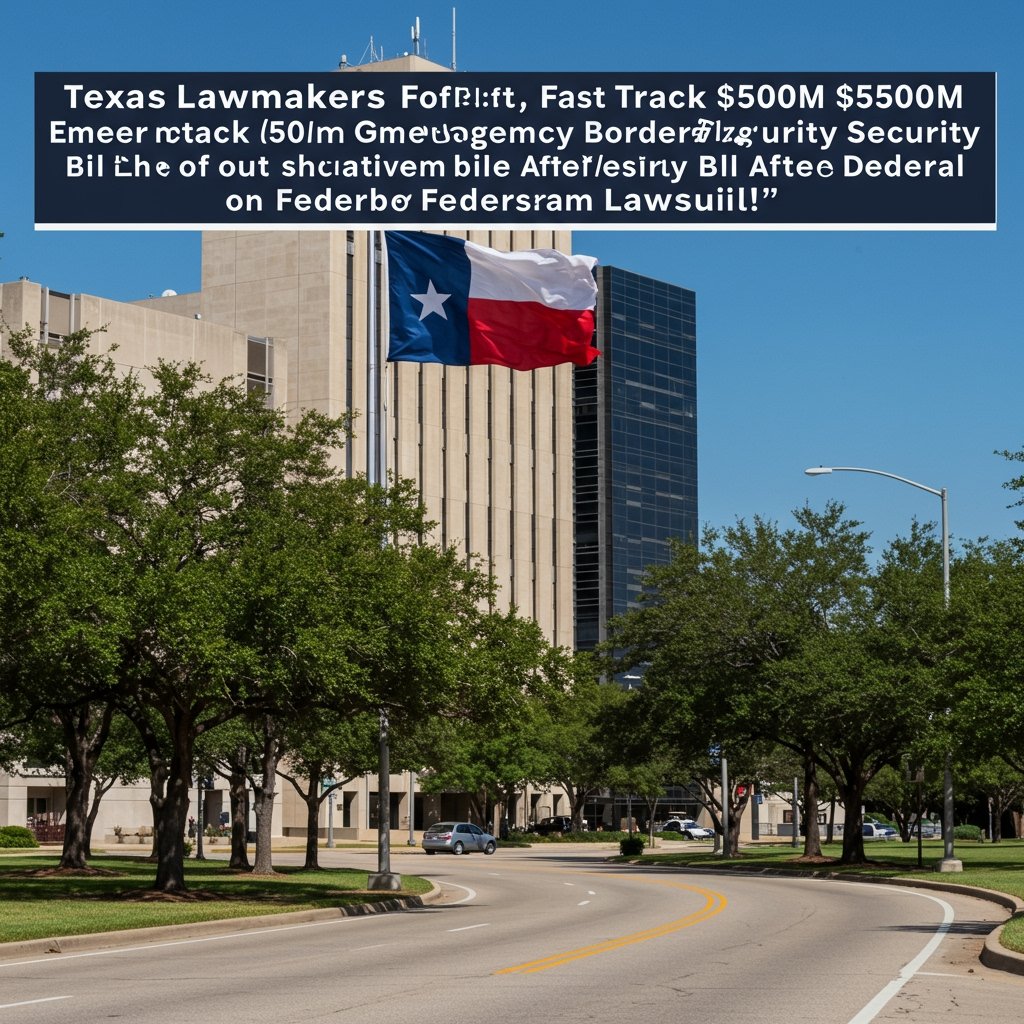Texas Legislature Considers Emergency Funding Amid Border Tension
AUSTIN, TX – Following the filing of a federal lawsuit on February 26th challenging aspects of the state’s controversial border security initiative, Operation Lone Star, Texas state legislators moved swiftly to address funding needs. A special session committee hearing convened on February 27th to consider emergency appropriations aimed at bolstering state efforts along the Texas-Mexico border.
Central to the committee’s deliberations was Senate Bill 10, introduced by State Senator John Smith (R-Austin). The proposed legislation seeks a substantial $500 million in emergency funding. According to Senator Smith, these appropriations are critical for escalating the state’s ongoing border security measures, which have been a focal point of the current legislative session and gubernatorial agenda.
Provisions of Senate Bill 10
Senate Bill 10 outlines specific areas targeted for this significant financial injection. A primary component of the bill is the proposed expansion of the Texas National Guard deployment. The additional funds are intended to support the increased personnel, operational costs, and logistical needs associated with a larger military presence along the border. Proponents argue that this expansion is necessary to deter illegal crossings and enhance security.
Furthermore, the bill earmarks funds for accelerating barrier construction, particularly in key areas identified as high-traffic crossing points. Locations explicitly mentioned for expedited barrier projects include segments near Eagle Pass and Del Rio. These areas have been at the center of state efforts to build physical impediments along the border, often leading to legal and political clashes with the federal government.
Senator Smith, in presenting the bill, emphasized the urgent need for the funding, framing it as a direct response to what he described as insufficient federal action on border security. He argued that the state has a responsibility to protect its citizens and manage its border effectively, necessitating this emergency financial measure to rapidly scale up existing operations.
Opposition Raises Concerns Over Cost and Authority
While proponents highlighted the security imperative, the bill faced sharp criticism from opponents during the hearing. Representative Maria Rodriguez (D-Houston) emerged as a prominent voice against Senate Bill 10, raising significant concerns regarding both the fiscal impact of the $500 million appropriation and the potential for conflict with federal authority over border matters.
Representative Rodriguez argued that the state’s resources are finite and questioned whether such a large sum should be allocated to what she characterized as duplicating or interfering with federal responsibilities. She contended that the $500 million could be better utilized for critical statewide needs such as education or infrastructure development, areas she argued provide a more direct and lasting benefit to Texas residents across the state.
Critics also voiced concerns about the transparency and accountability of rapidly deploying such a large sum for emergency operations. Questions were raised about oversight mechanisms and whether the proposed expenditures align with long-term strategic goals or simply represent a reactive measure with potentially limited effectiveness. The ongoing federal lawsuit against Operation Lone Star, filed just one day prior to the hearing on February 26th, added another layer of complexity to the debate, fueling arguments about the legality and constitutional standing of the state’s actions.
Opponents suggested that pursuing state-led border operations on this scale risks entanglement in protracted legal battles and could ultimately prove to be a costly endeavor with uncertain outcomes, diverting resources that could otherwise address pressing domestic issues within Texas.
Next Steps in the Legislative Process
Following the exhaustive committee hearing, which included testimony from various stakeholders, state agency officials, and concerned citizens, the bill now awaits a crucial vote. The committee is expected to vote on Senate Bill 10 later this week. A favorable vote would advance the legislation to the full Senate for consideration.
Given the urgency expressed by the bill’s proponents and the special session context, legislative observers anticipate that if the bill clears the committee, it could potentially be brought to a vote before the full Senate before the end of February. The rapid timeline reflects the high priority the state leadership places on the border security issue and the desire to quickly mobilize additional resources.
The debate over Senate Bill 10 highlights the deep divisions within the Texas Legislature regarding the state’s role in border security, the allocation of state funds, and the relationship between state and federal authority. The outcome of the committee vote and the subsequent potential Senate floor vote will determine the immediate future of this significant emergency funding proposal and its impact on Operation Lone Star.






